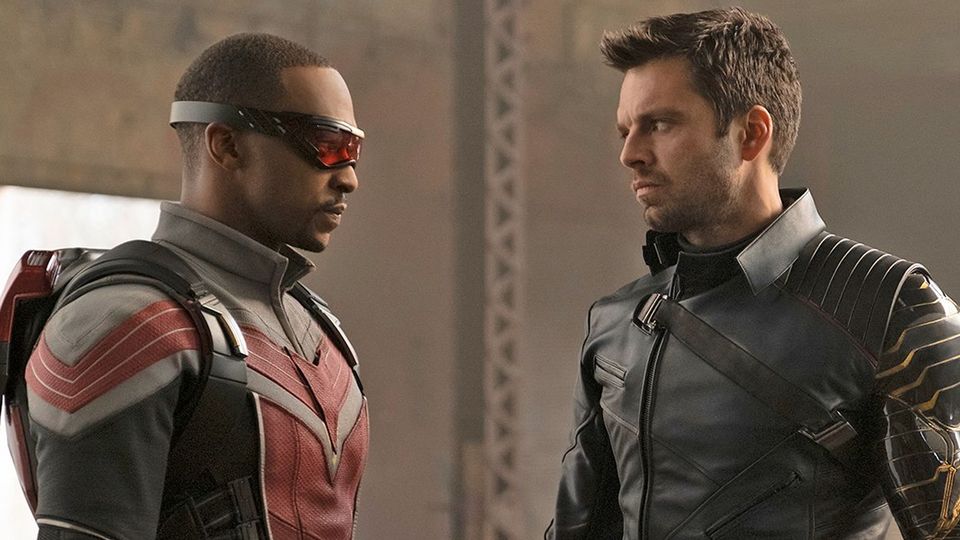Comics Disassembled: Ten Things of Note from the Past Week in Comics, Led by Good Summaries
It’s another semi-wonky week in comics news, so instead of focusing on bigger news, let’s look at an effective recap on a major story done by a top outlet. That’ll lead the way in Comics Disassembled this week, as I, as per usual, share my thoughts on ten things I liked or didn’t like from the past week in comics.

1. Inequities, Being Addressed
Aaron Couch over at The Hollywood Reporter wrote a piece late last week that acted as a nice summary of the not-so-nice feelings some creators have for DC and, particularly, Marvel over how they’ve been compensated for their work in creating characters and iconic elements of the superhero worlds that are manifested on screens both big and small. The bulk of what Couch covers has been known for some time, but it’s still good to see everything a) in one place and b) covered on a larger platform, as that can lead to positive momentum towards change for those affected.
One aspect I wasn’t aware of that Couch covered was that Jim Starlin’s deal was altered later on by Marvel to better compensate him for the creation of Thanos, something that makes a hell of a lot of sense given the integral nature of the character to the Infinity Saga that made up the bulk of the Marvel Cinematic Universe to date. And one thing Starlin said within that piece is honestly the crux of the whole thing for me: “The way these agreements are written up, Disney can be more generous if they want. It is written right there that they can change the terms to make it better.”
So, the question is, why not? Starlin hypothesized it’s because the squeaky wheel gets the grease, and he was a very squeaky wheel. Should there be more public campaigning for appropriate compensation for creators involving their creations that make it into the MCU and DC films? The answer, seemingly, is an obvious yes. Whether or not that always results in positive change is uncertain – see: Ed Brubaker and the Winter Soldier, who noted his paltry compensation for effectively creating that character (yes Bucky existed before but it’s deniable Brubaker fundamentally changed him), albeit perhaps in less of an obviously desirous way than Starlin approached it – but frankly, why the hell shouldn’t creators try that?
Anyways, it’s a good piece that looks at the situation in a good, largely all-encompassing way. That said, it’s been a week that this article about appropriate credit has been up and it still has Jeph Loeb’s name spelled wrong in the piece. Justice for Jeph! (Right) Letters for Loeb! Come on now!
2. 5G, Breaking My Brain
For some, continuity is the secret sauce of superhero comics, the straw that stirs their rather robust drink. Those people might have seen Rich Johnston’s reveal of the DC Comics timeline planned by Dan DiDio and friends that would be a governing aspect of the planned-but-scrapped 5G idea at the publisher and thought, “Yes. This is what I want.” Maybe.
But boy oh boy, am I not one of them. I look at that timeline and think two things:
First: That this is very much a comic book person’s idea of simplifying things.
Second: That it truly was an unnecessary level of detail, a nightmare of continuity manifested in timeline form.
I couldn’t dislike it more. Honestly, my thing with superheroes is continuity should be like memories are for us: things we know that happened before but honestly who can recall precisely what order? Like, recently my parents and I discussed a time when we had rabbits as pets. We debated when that was, before I think we all realized, “Hey wait, who cares when it happened, the ultimate point is we once had rabbits!” That’s the same thing for when Wally West gained his powers or Batman first adopted a child. Trying to focus so much on the past is a great way to get mired in the present, whether that’s in life or in storytelling.
The funny thing is I remember at New York Comic Con 2019, a DC creator had that timeline on their phone and they told me 3% about it and then they were like, “Oh, but I can’t show it to you.” And if I recall correctly, my response was basically this: “Good.” That isn’t interesting to me. Continuity doesn’t make good stories. Good storytelling makes good stories. To me, that timeline being a focus rather then, I don’t know, figuring out a path to elevating the good stories in the present strikes me what made so much of the recent past for DC such a bust for me as a reader. You can’t have a healthy present without accepting your past for whatever it is. Thankfully, they’ve seemingly figured that out now.
subscribers only.
Learn more about what you get with a subscription
